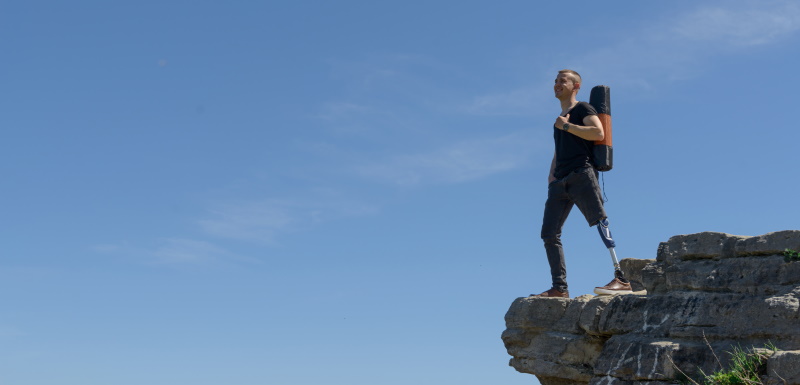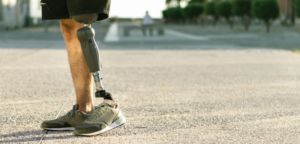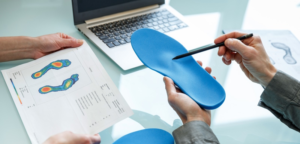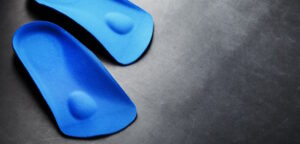Getting to Know Your Rights as They Apply to Advanced Prosthetics and Orthotics
The ability to travel is what allows us to visit distant relatives, explore exotic locales, and experience new cultures. However, as any seasoned traveler knows, the days of being able to buy a ticket and hop on a flight without incident are long gone. In November of 2001, the Transportation Security Administration (TSA) was established via the Aviation and Transportation Security Act.
For airlines, this meant having much stricter security measures in place to safeguard their planes and crew from potential threats. For travelers, it meant a much longer and far more invasive screening process to access their flights. However, this isn’t to say that the TSA is without merit. In 2021, they set a record for the number of firearms they discovered in carry-on bags.
Keeping that in mind, the past twenty some-odd years of dealing with the TSA have illustrated just how inconvenient and frustrating the process of getting on a flight can be. This is especially true for amputees who – through no fault of their own – attract a certain amount of attention due to having advanced prosthetics and orthotics.
The TSA and Advanced Prosthetics and Orthotics
Unfortunately, we live in an era where a medical device such as a prosthetic leg or a wheelchair usually results in an additional inspection. Considering the TSA isn’t allowed to put medical devices such as these through their X-ray machines, the hands-on inspection is necessary to ensure these medical devices contain nothing that would endanger the plane or its passengers.
Although someone in possession of advanced prosthetics will not be able to circumvent the additional screening process at the TSA checkpoint, it’s incredibly important to understand your rights and options as a traveler with a disability. Knowing the following key pieces of information ahead of time should help facilitate the process.
Get the proper documentation in order: Individuals who depend on medical devices such as a prosthetic leg or a wheelchair are encouraged to obtain a TSA Notification Card. This card essentially serves as a disclaimer to TSA personnel that you have a health condition, disability, or medical device that will affect your screening.
Call ahead to arrange for a Passenger Support Specialist (PSS): If you are a user of advanced prosthetics and orthotics and would like special assistance with the checkpoint process, you can contact TSA Cares at 1-855-787-2227 or via email at TSA-ContactCenter@tsa.dhs.gov. Make contact 72 hours prior to your scheduled departure to arrange to have a PSS meet you at the checkpoint.
Know your packing options: Per the TSA’s website, advanced prosthetics and orthotics are allowed in carry-on bags and checked bags.
Know your screening options: Individuals that use prosthetics have the option to be screened by pat-down or a device that uses advanced imaging. However, in the event that an advanced imaging device is not on-site, the passenger may be screened by a walk-through metal detector. If the prosthetic triggers the metal detector, it is subject to additional inspection.
Please note that the TSA cannot ask a passenger to remove their prosthesis. They may voluntarily remove it but are not required to do so. Additionally, passengers who use prosthetic limbs or similar medical devices have the option to request a private screening out of view from other passengers.
Companion rights: For those that use prosthetic devices that have requested a private screening, they are allowed to have their travel companion or family member with them during the process. No special medical license or permissions are necessary.
Explosive trace sampling: It’s possible that during the screening process, the TSA security officer will want to run a test for explosives. The security officer is required to explain the explosive trace sampling process before proceeding. The most common sampling areas include the hands, legs, and arms. As a reminder, a private screening may be requested for explosive trace sampling.
Additional Travel Resources and Pertinent Information
As a user of advanced prosthetics or orthotics, it’s important that you have all the information pertaining to traveling with a disability as well as resources to help you along the way. Refer to the following links when planning to travel.
U.S. Department of Transportation, Traveling with a Disability: This page is an excellent resource for those that want to learn more about the rules, regulations, and other official verbiage that covers traveling with a disability. Travelers are encouraged to get familiar with the Airline Passengers with Disabilities Bill of Rights.
Hertz, Car Rental Services for People with Disabilities: This page covers the procedure of renting a vehicle that is suitable for drivers with disabilities.
Looking for Orthotics or Prosthetics Near You in Kansas City? Contact Us Today!
Cotton Orthotic and Prosthetic Associates has been proudly serving the greater Kansas City metropolitan area for several years. As one of the area’s leading specialists in advanced prosthetics and orthotics, we offer customizable solutions that are affordable and allow clients to reclaim their quality of life.
To learn more about how Cotton Orthotic and Prosthetic Associates can help you, a friend, or family member who is challenged by limb loss, you can get in touch with us by calling (913) 338-2672. You also email us directly by using the contact form on our website.







